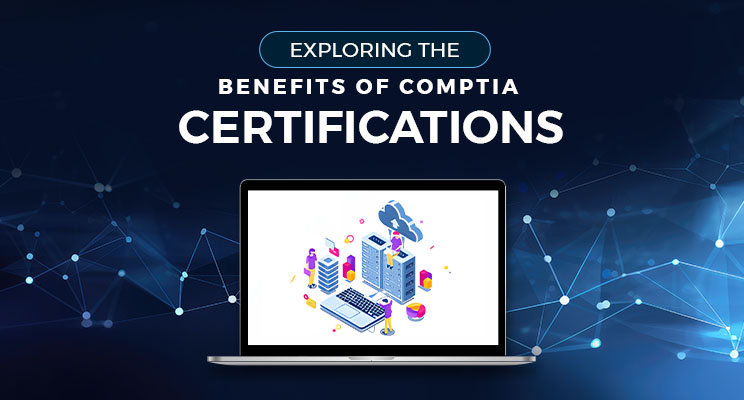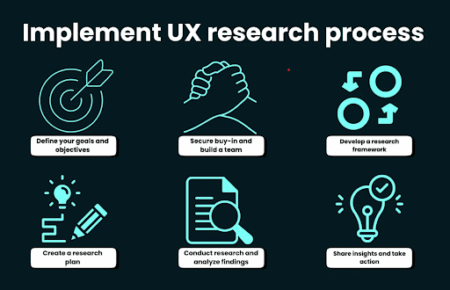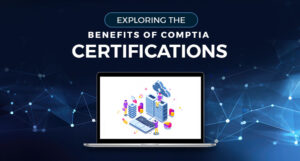Introduction – Why Certifications Still Define IT Careers in 2025
In 2025, the IT industry has become a landscape of constant transformation. Cloud platforms, AI, automation, and cybersecurity now sit at the core of every organization. As a result, IT certifications have evolved from simple resume boosters into career accelerators that validate your ability to adapt, problem-solve, and lead technological change.
For aspiring professionals and seasoned engineers alike, this guide walks through the entire certification journey, from entry-level credentials to elite expert title exams. You’ll learn which exams to take first, what skills they build, and how to progress strategically without wasting time or money.
Understanding How Certification Levels Work
Before choosing your path, it’s crucial to grasp the four-tier structure used across most IT vendors:
| Level | Description | Typical Duration | Example Certifications |
| Beginner / Foundational | Builds core knowledge and terminology | 4–8 weeks | CompTIA A+, Google IT Support |
| Intermediate / Associate | Validates practical application of skills | 2–3 months | CCNA, AWS Associate, Security+ |
| Advanced / Professional | Confirms hands-on implementation expertise | 4–6 months | Azure Architect, CISSP, DevOps Engineer |
| Expert / Specialist | Mastery of architecture, design & strategy | 6 months + | CCIE, JNCIE, Red Hat RHCA |
Step 1: Beginner-Level Certifications (Foundation Stage)
This stage is perfect for students, career-changers, and IT support technicians seeking to build a solid baseline of technical understanding.
CompTIA A+
- Focus: PC hardware, operating systems, networking fundamentals.
- Why It Matters: Recognized worldwide as the gateway into IT support and help desk roles.
- Exam Format: Two tests (220-1101 & 220-1102), 90 minutes each.
- Typical Preparation Time: 6–8 weeks.
Google IT Support Professional Certificate
- Platform: Coursera + Google Career Certificates.
- Highlights: Covers troubleshooting, customer service, Linux basics, and automation with Python.
- Outcome: Hands-on labs with Google’s real tools make it ideal for first-timers.
Microsoft Fundamentals (Microsoft Certified: Azure Fundamentals AZ-900)
- Goal: Introduce core cloud concepts and Azure services.
- Why Take It: An entry point to Microsoft’s role-based certification ecosystem.
- Exam Length: 40–50 questions, 60 minutes.
Step 2: Intermediate Certifications (Associate Stage)
After building your foundation, the associate level cements your ability to apply skills in real work environments.
Cisco Certified Network Associate (CCNA 200-301)
- Focus: Networking protocols, routing, switching, automation fundamentals.
- Why It’s Essential: Globally respected for network operations roles and a launchpad for CCNP or security tracks.
CompTIA Network+ & Security+
- Network+: Covers LAN/WAN design and troubleshooting.
- Security+: Adds threat management and risk mitigation.
- Ideal For: IT technicians transitioning into cybersecurity or network administration.
AWS Certified Solutions Architect – Associate
- Vendor: Amazon Web Services.
- Skills: Designing resilient, cost-efficient cloud architectures.
- Exam: 65 scenario-based questions over 130 minutes.
Microsoft Certified: Azure Administrator Associate (AZ-104)
- Core Topics: Managing virtual machines, identity, and networks on Azure.
- Benefit: Bridges cloud administration with security governance.
Certified Ethical Hacker (CEH v13)
- Authority: EC-Council.
- Purpose: Teach offensive security techniques and penetration testing tools.
- Preparation Tip: Use TryHackMe and EC-Council labs for practical experience.
Step 3: Advanced Certifications (Professional Stage)
Now you’re ready to move from technical execution to architecture, analysis, and leadership roles.
CISSP – Certified Information Systems Security Professional
- Provider: (ISC)²
- Scope: Eight domains spanning security architecture, operations, and risk management.
- Why It Matters: Recognized globally as the pinnacle of cybersecurity expertise.
- Average Salary (2025): $155,000 – $190,000.
AWS Solutions Architect – Professional
- Difficulty: High. Covers multi-tier applications and hybrid environments.
- Prerequisite: 1+ year AWS Associate experience recommended.
Microsoft Certified: Azure Solutions Architect Expert (AZ-305)
- Exam Type: Design-based questions and case scenarios.
- Skills: Network architecture, governance, security planning.
Red Hat Certified Engineer (RHCE)
- Focus: Linux system automation and enterprise management.
- Why Important: Preferred for DevOps and system engineering roles.
Certified Information Security Manager (CISM)
- Provider: ISACA.
- Focus: Governance, risk management, and incident response.
- Career Path: For security managers and IT leaders.
Step 4: Expert and Specialist Certifications (Mastery Stage)
At this level, certifications validate not just knowledge but strategic execution under pressure.
Cisco Certified Internetwork Expert (CCIE)
- Lab Exam: 8-hour hands-on configuration and troubleshooting.
- Tracks: Enterprise Infrastructure, Security, Data Center.
- Outcome: Elite status among network architects and consultants.
Juniper Networks Certified Internet Expert (JNCIE)
- Structure: Hands-on lab with routing, switching, and automation tasks.
- Why Prestigious: Validates true expert-level network design mastery.
Offensive Security OSCP / OSEP
- Nature: 24-hour practical penetration testing challenge.
- Focus: Exploit development, evasion, and reporting.
- Preparation: 4–6 months of lab practice recommended.
Certified Chief Information Security Officer (CCISO)
- Provider: EC-Council.
- Purpose: Equips leaders for executive security decision-making.
Google Professional Cloud Architect
- Scope: Design, security, and automation on GCP.
- Exam: Scenario-based case studies testing business and technical judgment.
Choosing the Right Certification Path
| Career Goal | Recommended Starting Point | Long-Term Path |
| IT Support & Help Desk | CompTIA A+ | Network+ → Security+ → MCSA |
| Network Engineer | CCNA | CCNP → CCIE or JNCIE |
| Cybersecurity Analyst | Security+ | CEH → CySA+ → CISSP |
| Cloud Architect | AWS or Azure Fundamentals | AWS Pro → CCSP → DevOps Engineer |
| DevOps / Automation | Linux Foundation LFCS | RHCE → Kubernetes CKA → Terraform Associate |
| IT Manager / CISO | CISM or PMP | CISSP → CCISO → MBA in Tech Mgmt |
Study Strategies That Actually Work
Blueprint-Driven Learning
Always start with the authentic exam objectives https://certmage.com/. They reveal exactly what to study and how topics are weighted.
Hands-On Practice
Build labs with tools like EVE-NG, AWS Free Tier, or Azure Sandbox. Practice is the difference between theory and true understanding.
Join Online Communities
Reddit r/ITCerts, LinkedIn Groups, and Discord servers are excellent for peer support and resource sharing.
Use Mixed Media
Balance reading (books and white papers) with videos, labs, and interactive exercises to reinforce concepts.
Set Milestones
Break large goals into weekly targets, for instance, finish one domain or chapter per week to stay on track.
How Long It Takes to Move From Beginner to Expert
| Stage | Average Time Frame | Typical Salary Range (USD) |
| Beginner | 0–6 months | $60 000 – $80 000 |
| Intermediate | 6–18 months | $85 000 – $110 000 |
| Advanced | 18–36 months | $115 000 – $150 000 |
| Expert | 3–5 years + | $160 000 – $220 000 + |
These ranges vary by region and specialization.
Common Challenges and How to Overcome Them
- Overwhelm: Focus on one track at a time instead of chasing multiple certifications.
- Burnout: Use Pomodoro sessions and scheduled breaks.
- Exam Anxiety: Take practice tests under timed conditions to build confidence.
- Information Overload: Stick to official blueprints and avoid unverified sources.
- Budget Constraints: Explore scholarships and vendor discounts (CompTIA and AWS often offer vouchers).
Emerging Trends in Certification Exams (2025–26)
- AI-Powered Testing: Adaptive questioning that adjusts difficulty in real-time.
- Micro-Credentials: Shorter, stackable certs for rapid skill validation.
- Remote Proctoring Security: Biometric identity verification and camera tracking.
- Scenario Simulations: More live labs to replace theoretical questions.
- Integration of Soft Skills: Leadership and communication domains in management-level certifications.
FAQs
Q1: Which certification should I start with if I have no experience?
A: Begin with CompTIA A+ or Google IT Support to learn hardware, troubleshooting, and network basics.
Q2: How do I progress from Security+ to CISSP?
A: After Security+, gain two years of experience and earn CySA+ or CEH before attempting CISSP.
Q3: Which path is better, cloud or cybersecurity?
A: Both offer high growth; choose cloud if you like infrastructure and automation, cybersecurity if you prefer defense and threat response.
Q4: How many certifications do I need to get a job?
A: Often one well-recognized certification and some hands-on practice are enough for entry-level positions.
Q5: Do certifications expire?
A: Most are valid for three years and require continuing education credits or retakes for renewal.
Final Thoughts
Becoming an IT expert isn’t a single step, it’s a journey of consistent learning, practice, and adaptation. From the moment you earn your first CompTIA A+ to the day you pass your CISSP or CCIE lab, each credential represents real growth in your skills and confidence.
In 2025, the IT world rewards professionals who balance certified knowledge with practical experience. Start with a clear goal, follow a structured roadmap, and treat each exam as a milestone toward mastery. Your expertise, and career potential, will grow exponentially with every step.







